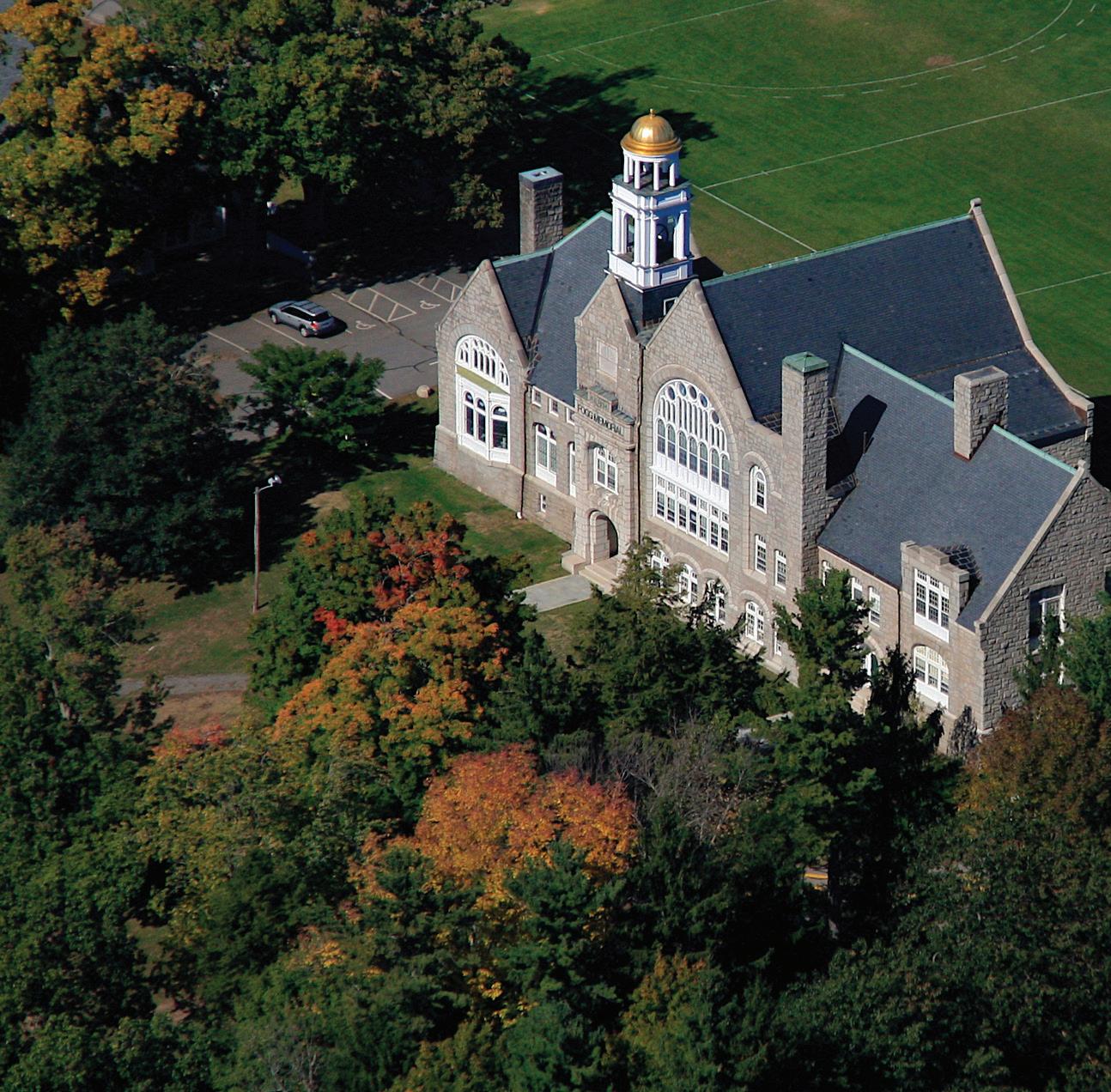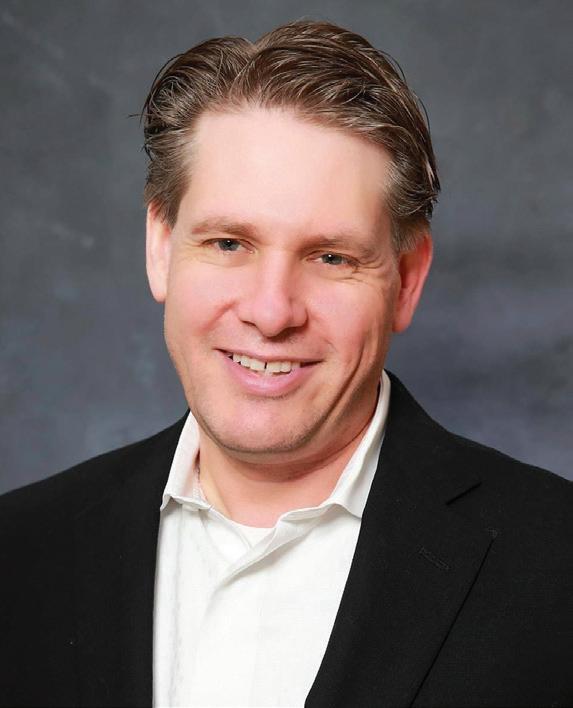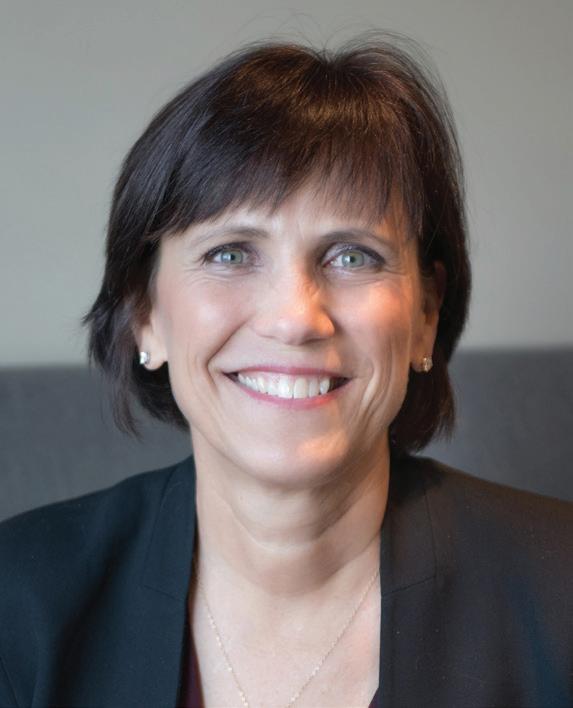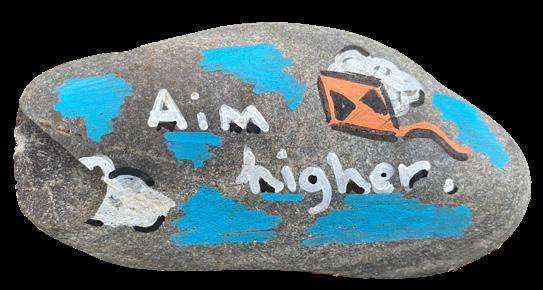
5 minute read
Looking Ahead
by Jana F. Brown
Trustees reflect on the impact of COVID-19 on their businesses and look to the future for their industries – and Berwick.


Natalee P. Ohayon Martin ’01 Jason Kroll P’28 Paula Williamson-Reid P’12, ’14

In her work as director of development for the University of Connecticut School of Medicine, Natalee P. Ohayon Martin ’01 found herself not only continuing to solicit donations for the important work of the school during the pandemic, but also charged with locating alternate housing for its medical professionals.
“I was asked to help find RVs that could be parked in physicians’ driveways so they could be close to their families but stay separated from them,” says Martin, a Berwick Trustee and President of the Alumni Advisory Board. “I also was calling hotels to ask them to donate blocks of rooms so doctors could stay away from home.”
The COVID-19 pandemic has upended lives in many ways, including how we work, where we work, what our job responsibilities entail, and how our businesses operate. In her pre-pandemic role, Martin spent significant time traveling for visits with potential donors. While she has been able to maintain some virtual face-to-face contact through Zoom, she has been working from home for the last year.
“Since March, we have changed fundraising priorities and have been focused on a COVID-19 rapid response fund,” says Martin. “It supports everything from buying coffee for the nurses in the Emergency Department to research support for COVID itself.”

Martin also discovered a surge of donors who were eager to help out at the start of the pandemic, but the trend soon shifted as the prolonged uncertainty caused some to want to hold onto their money. Grateful patients have become more frequent donors, as have alumni looking to offer scholarship money for physicians in training. Martin also says that the gift process has been streamlined since COVID hit, with unnecessary steps and revisits to donors recognized as unneeded.
Fellow Trustee Jason Kroll P’28 also has had to pivot over the past year, particularly with respect to his business model. As managing partner at BANK W Holdings, LLC, Kroll discovered early in the pandemic that it was essential to make some changes. With offices in New Hampshire and Greater Boston, the focus is on building and growing some of the region’s most successful staffing and recruiting companies. According to Kroll, BANKW Staffing lost 40 percent of its business in 30 days at the start of the COVID crisis. Over the ensuing months, Kroll and his team took a hard look at recurring and unnecessary costs and discovered inefficiencies they might not have found had the pandemic not forced their hand.
New efficiencies include more employees working from home, the ability to hold meetings with increased attendance via virtual conferencing, a reduction of annual costs that had crept into the budget out of habit, and additional remote training sessions. Kroll also noted the realization that the efficiency of remote work is no longer to be feared, meaning BANK W Holdings is able to hire candidates who live outside of the reasonable driving distance of the company’s offices – a game-changer in terms of personnel options.
“It took something this awful to make us look at things differently, but it has set us on a new path for decision-making,” says Kroll, the parent of twin Berwick fifth graders. “The pandemic forced us to make the hard decisions we needed to make. Fear is a great motivator sometimes, and when you are worried you are not going to make the next payroll, it’s really easy to cut things you thought you needed.”
Trustee Paula Williamson-Reid P’12, ’14 notices similar changes in her industry. Williamson-Reid is president of the executive search company Reid & Co. and also does leadership coaching and career development. Her executive search business’s focus is within the fashion, footwear, accessories, and sportswear industries. Because of shutdowns of retail spaces, those businesses were significantly impacted by a rapid acceleration of consumer buying trends. There were mass layoffs in the industry, and the priority shifted from brick and mortar storefronts to highly accelerated digital platforms.
“In my industry in general, what’s emerged is the recognition that there are a lot of things you can do remotely,” says Williamson-Reid. “There has always been this tug of war, people wanting to preserve time at home but commuting two hours one way. They are now gaining four hours of life back. There is a recognition that you don’t have to be at a desk in the same office to have telephone calls, and that’s a great thing.”
The downside, notes Williamson-Reid, is the dissolution of daily office rituals and also the fact that the sacred boundaries between work and home have been breached.
“People are working more than they have ever worked,” she says. “People are not taking vacations because there is no downtime built in. Work is constant, and that is an unhealthy trend. We are seeing a real realignment of what matters to leaders. What is the role work needs to play into their lives, and how does that balance out? What is valued in a person? Is the value around what you deliver, or is it more important that you are there for 12 hours a day?”
Martin, Kroll, and Williamson-Reid all agree that, in a time of uncertainty, Berwick Academy has emerged stronger than ever. Kroll, who has two children at the school, points to the quick and successful transition in the spring of 2020 to remote learning, and credits school leadership, including Head of School Jim Hamilton, for the planning that went into that transition from in-person learning. The return to school in the fall also has impressed Kroll.
“They did it the right way, with safety first and delivering on the mission a close second,” he says. “And Berwick balanced those things as well as any place I have seen.”
Martin, too, was impressed by Berwick’s readiness to shift its programs and schedule so quickly – and in the best interest of the students. Williamson-Reid called Berwick “more incredible than ever. One of the things that has become apparent is the strength of the community and how it understands how you take care of each other to reach a common goal. The reason they have been so successful in managing through this crisis goes from administrative leaders to faculty and staff to students and parents, each taking responsibility that leads to a greater good.”








